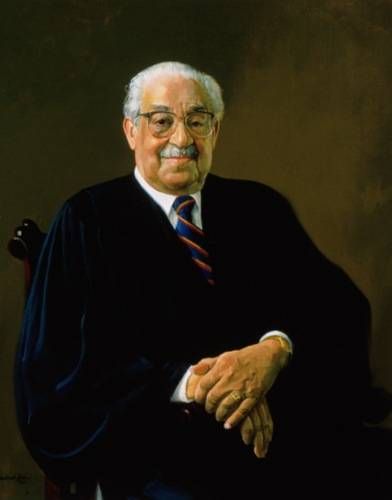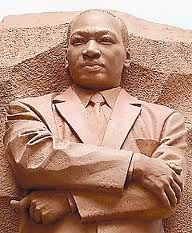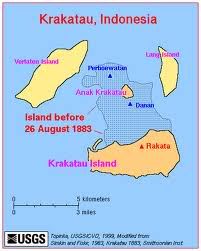“Punting the Pundits” is an Open Thread. It is a selection of editorials and opinions from around the news medium and the internet blogs. The intent is to provide a forum for your reactions and opinions, not just to the opinions presented, but to what ever you find important.
Thanks to ek hornbeck, click on the link and you can access all the past “Punting the Pundits”.
Dean Baker: President Obama’s Job Creation Mirage
We’ve heard plenty about Obama’s post Labor Day job creation speech, but will it contain anything that might actually work?
President Obama has discovered how serious the recession is. That’s what he told an audience in Chicago last week. To be fair, he was referring to revised data from the commerce department showing that the falloff in GDP was larger than originally reported.
But ridicule is appropriate. He and we knew all along how many people were out of work. The employment numbers told us the size of the hole and the desperate need for government action.
This sort of ridiculous comment, and President Obama’s weak response to the recession over the first two and a half years of his presidency, explains the tidal wave of scepticism facing his widely hyped upcoming speech on jobs after the Labor Day weekend. The list of remedies leaked ahead of time does little to inspire hope.
Glen Greenwald: The Decade’s Biggest Scam
The Los Angeles Times examines the staggering sums of money expended on patently absurd domestic “homeland security” projects: $75 billion per year for things such as a Zodiac boat with side-scan sonar to respond to a potential attack on a lake in tiny Keith County, Nebraska, and hundreds of “9-ton BearCat armored vehicles, complete with turret” to guard against things like an attack on DreamWorks in Los Angeles. All of that — which is independent of the exponentially greater sums spent on foreign wars, occupations, bombings, and the vast array of weaponry and private contractors to support it all — is in response to this mammoth, existential, the-single-greatest-challenge-of-our-generation threat:
“The number of people worldwide who are killed by Muslim-type terrorists, Al Qaeda wannabes, is maybe a few hundred outside of war zones. It’s basically the same number of people who die drowning in the bathtub each year,” said John Mueller, an Ohio State University professor who has written extensively about the balance between threat and expenditures in fighting terrorism.
Last year, McClatchy characterized this threat in similar terms: “undoubtedly more American citizens died overseas from traffic accidents or intestinal illnesses than from terrorism.” The March, 2011, Harper’s Index expressed the point this way: “Number of American civilians who died worldwide in terrorist attacks last year: 8 — Minimum number who died after being struck by lightning: 29.” That’s the threat in the name of which a vast domestic Security State is constructed, wars and other attacks are and continue to be launched, and trillions of dollars are transferred to the private security and defense contracting industry at exactly the time that Americans — even as they face massive wealth inequality — are told that they must sacrifice basic economic security because of budgetary constraints.
We have begun the election march of the trolls. They have crawled out of the sewers of public relations firms, polling organizations, the commercial media, the two corporate political parties and elected office to fill the airwaves with inanities and absurdities until the final inanity-the 2012 presidential election. Journalists, whose role has been reduced to purveyors of court gossip, whether on Fox or MSNBC, descend in swarms to report pseudo-events such as the Ames straw poll, where it costs $30 to cast a ballot. And then, almost immediately, they blithely inform us that the Iowa poll is meaningless now that Rick Perry has entered the race. The liberal trolls, as they do in every election cycle, are beating their little chests about the perfidiousness of the Democratic Party and Barack Obama. It is a gesture performed not to effect change but to burnish their credentials as moralists. They know, as do we, that they will trot obediently into the voting booth in 2012 to do as they are told. And everywhere the pulse of the nation is being assiduously monitored through polls and focus groups, not because our opinions matter, but because our troll candidates understand that by parroting back to us our own viewpoints they can continue to spend their days lapping up corporate money with other trolls in the two houses of Congress, the White House, the Supreme Court and television studios where they chat with troll celebrity journalists.
The only commodity the troll state offers is fear. The corporate trolls, such as the Koch brothers, terrify the birthers, creationists, militia lovers, tea party militants, right-to-life advocates, Christian fascists and God-fearing red-white-and-blue patriots by proclaiming that unless they vote for Perry or Mitt Romney or Michele Bachmann or some other product of the lunatic fringe of our political establishment, the American family will be destroyed, our children will be corrupted and the country will turn socialist. Barack Obama, who they whisper is a closet Muslim, will take away their guns, raise their taxes and bring homosexual couples into kindergartens.
George Zornick: Fear, Inc.: America’s Islamophobia Network
At this time last year, as the ninth anniversary of the September 11 attacks approached, the country was gripped by a pernicious debate over a “mosque” (really, an Islamic cultural center) near Ground Zero in New York City.
Pushback against the project actually began months earlier and was led by a group called Stop Islamization of America, which launched “Campaign Offensive: Stop the 911 Mosque!” in May 2010. The group’s founder, Pamela Geller, charged that “this is Islamic domination and expansionism. The location is no accident. Just as Al-Aqsa was built on top of the Temple in Jerusalem.” The group’s co-director, Robert Spencer, helped Geller organize rallies and protest campaigns aimed at a lower Manhattan community board, which reported getting “hundreds and hundreds” of calls and e-mails from around the world as a result of the well-funded and highly coordinated campaign.
David Sirota: 25 Years Later, How ‘Top Gun’ Made America Love War
Americans are souring on the wars in Iraq and Afghanistan. The military budget is under siege as Congress looks for spending to cut. And the Army is reporting record suicide rates among soldiers. So who does the Pentagon enlist for help in such painful circumstances?
Hollywood.
In June, the Army negotiated a first-of-its-kind sponsorship deal with the producers of “X-Men: First Class,” backing it up with ads telling potential recruits that they could live out superhero fantasies on real-life battlefields. Then, in recent days, word leaked that the White House has been working with Oscar-winning director Kathryn Bigelow on an election-year film chronicling the operation that killed Osama bin Laden.
A country questioning its overall military posture, and a military establishment engaging in a counter-campaign for hearts and minds – if this feels like deja vu, that’s because it’s taking place on the 25th anniversary of the release of “Top Gun.”


 High in the Andes Mountains of Peru, the Inca built a dazzling empire that governed a population of 12 million people. Although they had no writing system, they had an elaborate government, great public works, and a brilliant agricultural system. In the five years before the Spanish arrival, a devastating war of succession gripped the empire. In 1532, Atahuallpa’s army defeated the forces of his half-brother HuÁscar in a battle near Cuzco. Atahuallpa was consolidating his rule when Pizarro and his 180 soldiers appeared.
High in the Andes Mountains of Peru, the Inca built a dazzling empire that governed a population of 12 million people. Although they had no writing system, they had an elaborate government, great public works, and a brilliant agricultural system. In the five years before the Spanish arrival, a devastating war of succession gripped the empire. In 1532, Atahuallpa’s army defeated the forces of his half-brother HuÁscar in a battle near Cuzco. Atahuallpa was consolidating his rule when Pizarro and his 180 soldiers appeared. His speech,
His speech,  Welcome to the Stars Hollow Health and Fitness weekly diary. It will publish on Saturday afternoon and be open for discussion about health related issues including diet, exercise, health and health care issues, as well as, tips on what you can do when there is a medical emergency. Also an opportunity to share and exchange your favorite healthy recipes.
Welcome to the Stars Hollow Health and Fitness weekly diary. It will publish on Saturday afternoon and be open for discussion about health related issues including diet, exercise, health and health care issues, as well as, tips on what you can do when there is a medical emergency. Also an opportunity to share and exchange your favorite healthy recipes. 


Recent Comments